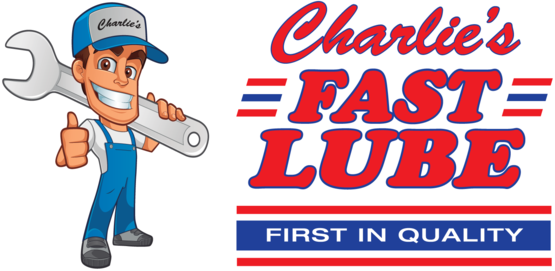Charlie's Fast Lube Jackson Tire Safety: Washington vs. Lincoln
August 4, 2019
Welcome to the Charlie's Fast Lube Jackson automotive blog. Today, let's talk about the effect of tire wear. 
Let's focus on stopping in wet Jackson conditions. In order for a tire to have good contact with the road, it has to move the water out of the way. If it can't move the water, the tire will actually ride on top of a thin film of water.
That's called hydroplaning. If it's really bad, Jackson drivers can actually spin out of control - endangering themselves and the other drivers around them. At best, you won't stop as fast.
So how does a tire move water? It has channels for water to flow through. Look at your vehicle tire and you'll see channels: channels that run around the tire and channels that flow across the tire. They're designed to direct water away from the tire so it can contact the road better.
And the deeper the channel, the more water it can move. A brand new Charlie's Fast Lube Jackson tire has very deep channels and can easily move a lot of water. As the tire wears down, the channels become shallower and can move less water. When it wears down enough, it can seriously affect your ability to stop your vehicle on wet Jackson roads.
So that's why it's so important for Jackson drivers to replace their vehicle tires when they get worn. Consumer Reports and other advocate groups call for a standard of 3/32 of an inch and they have the studies to prove it.
At Charlie's Fast Lube Jackson, we want our customers to know that the deeper recommended tread depth makes a big difference. Stopping distances are cut dramatically on wet Jackson streets. A safe stop from Missouri speeds with 4/32 of an inch of tread would result in a crash with worn out tires.
There's an easy way to tell when a tire's worn to 4/32 of an inch.
Just insert a quarter into the tread. Put it in upside down. If the tread doesn't cover George Washington's hairline, it's time to replace your vehicle tires. With a Canadian quarter, the tread should cover the numbers in the year stamp.
Many Jackson residents have heard of this technique using a penny and Abe Lincoln's head - the old method. That measure gives you 2/32 of an inch – half the suggested amount. Of course, vehicle tires are a major purchase. Most of us in Jackson want to get as many miles out of them as we can. But there's a real safety trade-off. It's your choice.
Charlie's Fast Lube Jackson
1901 E. Jackson Blvd.
Jackson, Missouri 63755
575-243-2226
http://www.charliesfastlubejackson.com
Need Service?
More articles from Charlie's Fast Lube Jackson

Charlie's Fast Lube Jackson Advice on What to Pour into Your Vehicle
April 13, 2025
Changes in vehicle design and manufacture have resulted in changed fluid requirements for our vehicles. With the sophistication of engines, transmissions, differentials, etc., it's best for Jackson residents to always use the proper type of fluid for their vehicle. Using incorrect fluids can act... More

Low Power Mystery (Ignition Coil Service)
April 6, 2025
It's no fun when your vehicle just doesn't run the way it used to. You may notice (especially in cold weather) the engine won't start easily or when it does start, it doesn't run smoothly. It may not have much power at all. You also may have had to stop at the gas station more often, a sign you... More

Feeling Powerless (Why Is My Battery Light On?)
March 30, 2025
When one of your vehicles warning lights comes on, the first thing that comes to mind is, Oh, no, whats wrong now? When its the battery light, it means theres something wrong with your vehicles battery or charging system. And because both are important for your vehicle to work properly, its a go... More










